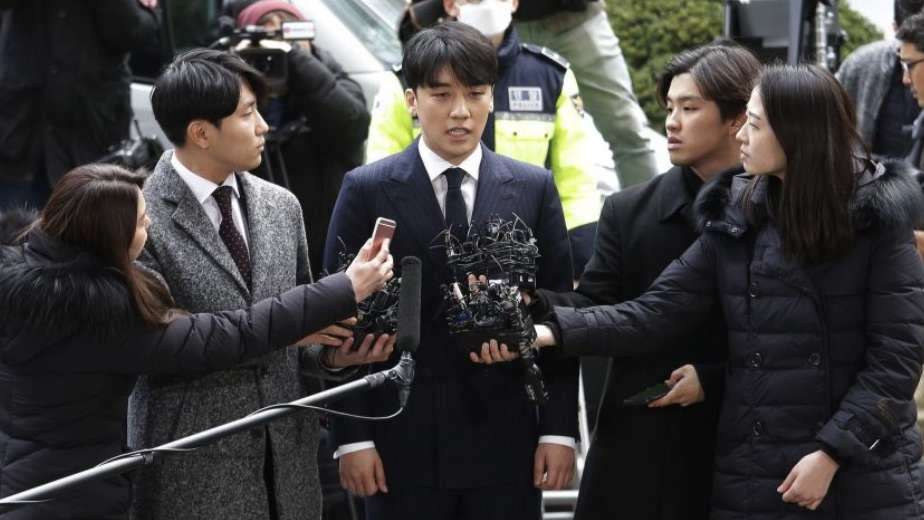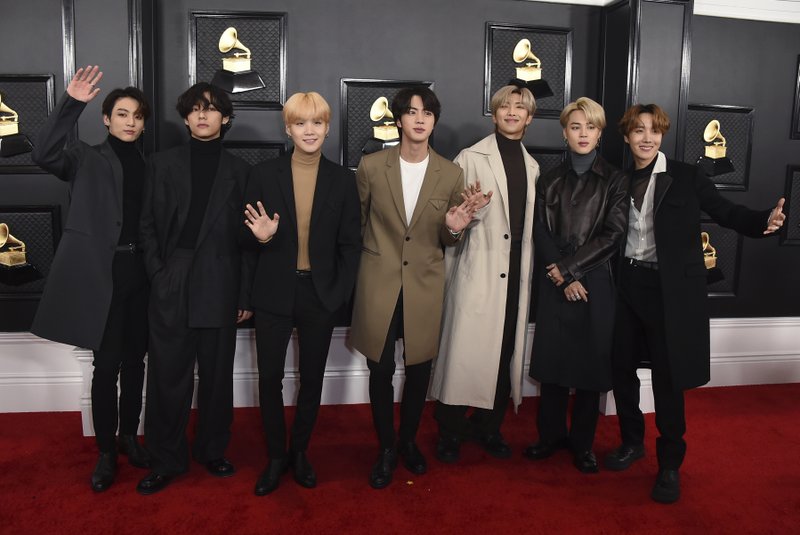On October 14, retired BigBang member, Seungri (Lee Seunghyun), accompanied by his lawyer, Son Byung-ho, attended his second hearing at the Ground Operations Command’s General Military Court in Yongin-si, Gyeonggi-do.
Seungri is currently serving as a private soldier in South Korea’s 5th Artillery Brigade, under the 5th Army Corps while facing eight indictments. In particular, these include prostitution (for self); prostitution mediation (for others between December 2015 to January 2016 in order to attract investment); embezzlement (22M won disguised as hiring legal representative fee); embezzlement (528M won involving Burning Sun revenues to use for his club Monkey Museum); violation of Food Sanitation Act (involving Monkey Museum wrongfully registering business); habitual gambling (between December 2013 and August 2017 in Las Vegas); distributing obscene material/shooting using camera (single photo of pornographic nature); and violation of the Foreign Exchange Transactions Act (illegal monetary exchange of $1 million for casino tokens).
In the South Korean justice system a trial takes place over the course of several settings or sessions termed hearings. On September 16, the first hearing of Seungri’s trial took place, wherein he and his defense firmly denied all charges except for the violation of Foreign Exchange Transactions Act. (See BM article “Seungri’s military court trial begins”)
At the second hearing, the Court examines and determines the admissibility of evidence. The presentation of evidence is at the very heart of a criminal case. The burden of proof is on the Prosecution to prove beyond a reasonable doubt that the defendant Seungri is guilty. The Prosecutor cannot prove the case without collaborating evidence. However, before evidence can be used in a case it must be judged admissible by the court.
Also, the second hearing is significant because the presiding Judge has the opportunity to examine and hear the legal reasoning of both Prosecution and Defense before determining if certain evidence will be allowed to be admitted (adopted). Admitted means the evidence can be used in an argument. If the evidence is not allowed or denied, that evidence cannot be used during arguments by either party.
According to procedure, the Prosecution began their presentation and examination of evidence followed by the Defense. During the process, the Prosecution team presented several pieces of evidence, including new evidence such as a promotional photo related to the Monkey Museum.
The Defense responded by firmly disagreeing to the admittance of such evidence due to questionable reliability. Seungri’s lawyer reasoned, “It is hard to agree (to allow admissibility) for Monkey Museum’s internal photo because the source is unknown”. If the evidence is unreliable, it does not meet the criteria of a competent evidence.
The Defense objected to several articles of evidence based upon the legal criteria. The Judge acknowledged, “Evidence can only be admitted when the Prosecution’s and investigator’s document and statements (evidence) have been submitted for review by the Defense allowing (them) the right to cross-examination. However, the Defense has disagreed (about the admissibility of said evidence in particular in reference to new evidence previously disclosed).”
Under such circumstances, the Finder of Fact (Judge) will determine if the evidence satisfies a number of requirements to meet the legal criteria of admissibility. To be admissible in court, evidence must be relevant, material, and competent. Furthermore, evidence must be excluded if the evidence is unfairly prejudicial, confusing, a waste of time, privileged, or hearsay.
Another key part of examination of evidence is testimonial evidence. The hearing addressed possible witnesses who would provide testimonial evidence.
The prosecution proposed the admittance of a total of 22 individuals as witnesses for testimonial evidence. For charges of prostitution, prostitution mediation, and illegal filming (reference to one obscene photo of a women’s back shared in private chat), seven witnesses were named including Yoo In-seok, Jung Joon-young, and Kim In-cheol. For the violation of the Food Sanitation Act, six witnesses were presented. For allegations related to embezzlement, seven witness names were put forward. And there are two witnesses who’s place in giving evidence has not been accounted for. Moreover, the court has not confirmed how many of the 22 proposed witnesses are expected to give testimony for the remaining indictments.
Throughout the hearing Seungri maintained that he did not film or shoot the photo. He asserted that the picture was not illegal filming. The Judge followed up by asking him how he obtained the picture. He replied, “It was sent to the Web Chat application from an employee working at a Singapore entertainment bar.” Additionally, the Judge inquired if Seungri admitted that he shared the picture in the private chat room of KakaoTalk group which included Jung Joon-young and Kim In-cheol. Seungri clearly answered “yes”.
The Defense broached the subject of the Court applying for Witness Subpoena to a group of foreign individuals related to charges of Prostitution Mediation. The Court explored the difficulties related to applying for a Witness Subpoena in the midst of a coronavirus pandemic during a military trial. However, the Judge concluded, “If you want, let the defense lawyer apply on their own (for Witness Subpoena)”. Furthermore, he stated, “I do not know if it will be direct evidence related to the indictments”.
Seungri’s lawyer voiced that witnesses such as those from Japan can provide useful evidence. The Defense stated that he could not reach them and that he would attempt to obtain witness statements in a document form as an alternative.
The third hearing date was set for November 12 (4 witnesses), and the fourth on Nov. 17 (9 witnesses). Hearings will take place in consecutive weeks to formally present admissible evidence and witness testimony to support the argument and allow for cross examination of evidence. Due to the large number of witnesses the testimonies are scheduled until December 17.


































3 comments
As someone who has been following this case from the beginning, I really appreciate Attorney Sabah Themis for taking the time to write these articles in a timely, educational, and unbiased way. Please continue to update us through the conclusion of the trial. Thank you for your hard work.
Our Law School Class in the US has followed and studied this case. It has been both interesting in terms of learning South Korean procedure and law. However, we had discovered that there was a lack of high journalistic standards when covering this case. Most entertainment media reported stories full of holes or misinformation. Our class has been reading the BM articles since they were first published. I want to thank the journalist and BM for maintaining such degree of integrity and professionalism in covering this case.
This edition, clearly expresses what took place for the 2nd hearing putting any misconceptions to bed.
Your updates keep me informed. I am glad that there is someone who is willing to report about the case objectively. I’m looking forward to the end of trials,to see how the situation will develop. Thanks alot to both Business mirror and the writer.